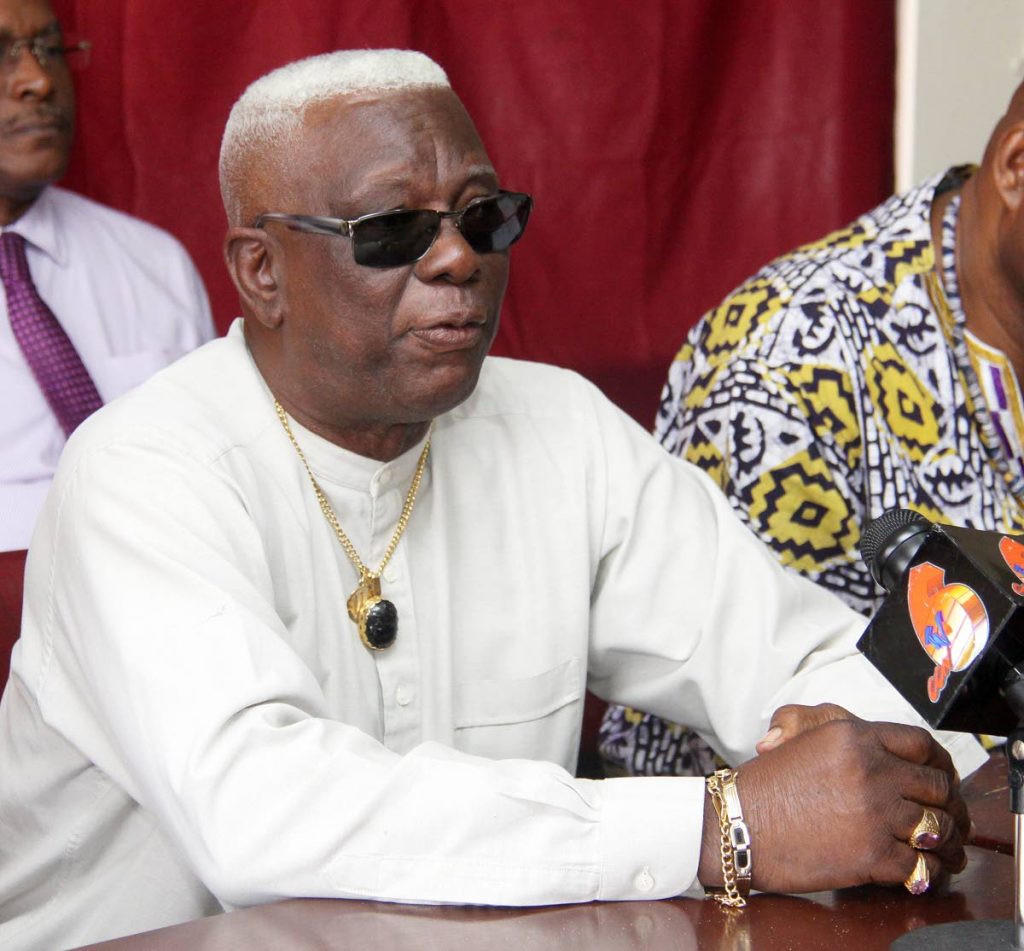Debate heats up over retirement age

As the debate over raising the retirement age heats up, the Employers Consultative Association (ECA) is declaring that it is inevitable, that, sooner rather than later, Government will have to face the music and increase the age to 65. It is a matter of dollars and cents says the ECA. Trade union heavy weights, on the other hand, are split over the issue.
President of the Joint Trade Union Movement (JTUM) Ancel Roget is ready to hit the streets over any plans Government may have to increase the retirement age from 60 to 65. His comrade, James Lambert of the National Trade Union Centre (NATUC) is in favour of the increase. Lambert said he is shocked that Roget would object to that move. But while all the major stakeholders are fighting over the pros and cons, Finance Minister Colm Imbert is denying that such a proposal is on the cards.
For most categories of workers in TT, both in the public and private sector, the retirement age is 60.
The debate over the retirement age flared during May Day celebrations in San Fernando when Roget supported by hundreds of workers gathered on Harris Promenade in San Fernando promised "all hell will break loose," if government should try to raise the retirement age to 65.
Roget told union members that the proposal was being floated by Prime Minister Dr Keith Rowley and his Finance Minister as a means of denying them their legitimate right to National Insurance benefits.
"No longer will you be having a retirement party, what in fact you will be having is a wake, because you moving from your work straight to your grave, because their intention is to work you till you dead,” Roget insisted.
"We stand in silence too long, and those days are over. We must take to the streets of TT in our numbers again and again and again. We must not be silent.”
In a warning to Government, Roget said, "Take your hands off of our NIS benefits or, as they say comrades, all hell will break loose."
But hours later, Imbert fired back at Roget saying his Government was not pursuing any such proposal and that Roget’s claims were false.
He said, “Indeed, as far back as January 2017, over a year ago, at the opening of the new NIB Headquarters in Port of Spain, the Minister of Finance stressed, in his feature address at that event, that pushing back the retirement age was not Government policy and that no decision had been taken on the matter."
Imbert explained that Government’s position on the retirement age had been raised in Parliament on several occasions since January 2017and on every occasion he had made it clear that there were no plans to increase the retirement age and that no decision had been taken by the Government on the matter.
But even as the Minister was at pains to explain his position, NATUC, at a news conference three days later on May 4, pleaded with Government for the retirement age to be extended to 65 saying TT was the only country in the region with a 60-year ceiling.
"We are of the view that the time has come for the National Insurance Board (NIB) to make a recommendation pertaining to carrying the age to 65, because they are losing money which they cannot afford to pay. Carry the age back to 65 to give some room.” Lambert said.

"Elsewhere in the Caribbean we have people working until they are 65 and 67. We consider 60 to be early for retirement."
Despite the stout denials from Imbert last week, less than a month ago Independent Senator Sophia Chote inquired about the delay in increasing the retirement age to 65 as she chaired the Joint Select Committee (JSC) on Finance. In addition, it appears there are already measures in place to deal with a retirement age of 65.
The National Insurance Board (NIB) which manages retirement benefits states: "Every employee who has paid National Insurance contributions is entitled to a retirement benefit. You qualify for the retirement benefit at any time between the ages of 60 and 65 if you are retired or at age 65 whether you retire or not." Retirees receive a monthly sum of $3,000 from the NIB.
At the recent JSC meeting, NIB executives responded to Chote’s concerns about implementing the increased retirement age saying they were proposing an incremental increase from 2025 where it would be increased by one year bringing it to 61 and raising it incrementally until 2060.
A major concern of the NIB is that current contributions are not able to cover its commitments to retirees. Last year the NIB collected $4.5 billion but that was no enough to cover its expenses. In 2018 it is projected to pay out $4.8 billion to retirees.
CEO of the Employers Consultative Association (ECA) Stephanie Fingal said it was only a matter of time before the increased age was applied and that the situation had to be viewed in a rational way.
"The introduction of the increased retirement age cannot be sudden but must be gradual. The bottom line is we have to be pragmatic. This is about dollars and cents," she said.
She explained TT had a declining population as compared to the last 30 years but people were living longer. So "contributions of the declining population will have to be multiplied several times over in order to meet pension payments of a longer living pension group.
“If we delay (implementing an increased retirement age), the younger generation will have to pay increasing sums in order to maintain the pension fund."
The disadvantage in increasing the retirement age, according to Fingal, is that young people would have difficulty finding employment and would not be trained in the various professions while their seniors held onto their jobs.
She noted, however, that some employers were reluctant to lose their mature workers because of their skill efficiency.
South Regional Manager for Maritime Financial Services, Trevor Rex Badaloo concurs with the ECA boss that the retirement age should be increased to 65 but said there must be compromise. He said people in their 60s were still youthful as opposed to 30 or 40 years ago.
“There are too many young/old people sitting down doing nothing,” he said. “They have never prepared for retirement. Most of them never took advantage of the saving incentive programme in their younger days.
“People take retirement for granted and then have to depend on the $3,000 from NIB which is insufficient for them to live on."
He said there was an added benefit to working as you aged because keeping the brain and body active kept people healthier.
A random survey of people found that more of them would prefer to see the retirement age stay at 60. One woman in her late 50s, who preferred to remain anonymous, said working up to 65 for women should be optional because of health considerations. She said working women worked twice as hard as they had the added responsibility of housework and taking care of children.
She said she was looking forward to retirement at 60 to spend time with her grandchildren and travel abroad.
Alicia Howe, 46, a geriatric nurse from Fyzabad agreed. "Leave it at 60 or make it optional. Some 60-year-olds are still strong but not everyone.”
Candis John, 28, a nursing student from La Brea, insisted the retirement age should be 60. "Leave it at 60. Sixty-five is way too long to wait.”
Trevlon Marshall, 24, a warehouse attendant from San Fernando disagreed: "Carry it up to 65. Sixty is too young to retire and the longer you work the more money you will earn."


Comments
"Debate heats up over retirement age"